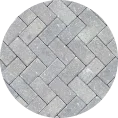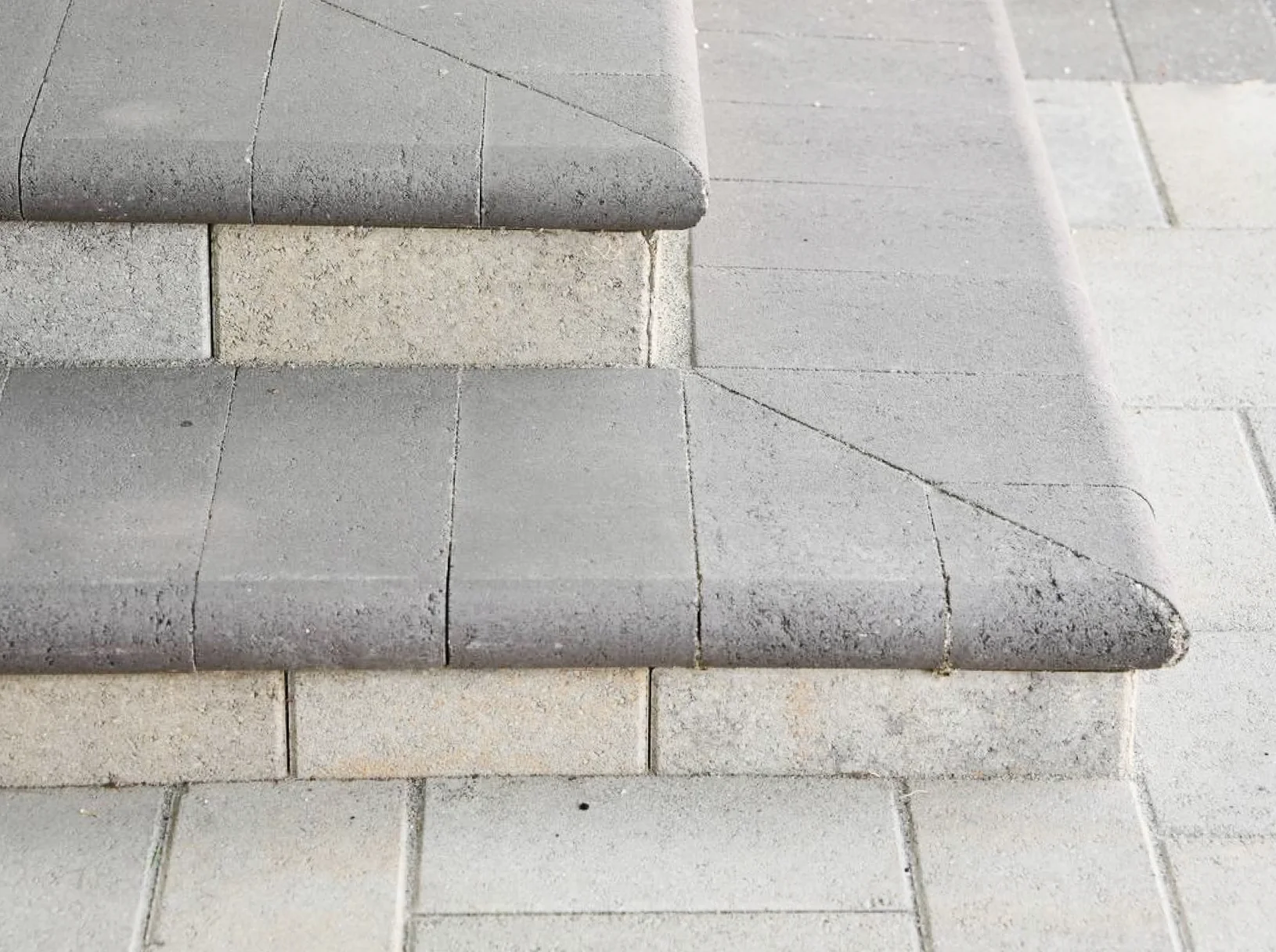Why Choose Concrete Pavers Over Other Options?
Unlike large sections of concrete slab, concrete paver stones have small surface areas that make them more resistant to cracking. They’re much easier to install and to replace than slabs, yet they feature the strength, durability, and beauty of concrete. Concrete pavers are typically an economical choice for residential paving projects, as well. And they come in a diverse range of colors, shapes, sizes, and textures.
- Versatility: Concrete pavers can be designed using many different layouts, shapes, and sizes to create a custom outdoor space that’s unique to you.
- Durability: Concrete pavers are long-lasting and stand up well to extremes of weather.
- Easy to Maintain: If one paver becomes damaged, replacement is easy and affordable.
- High-End Appearance: Interlocking concrete pavers create a cohesive, finished hardscape that looks high-end.
- Cost-Effective: An interlocking paver system may cost more to install. However, it will last longer than other paving alternatives, including poured concrete or asphalt.
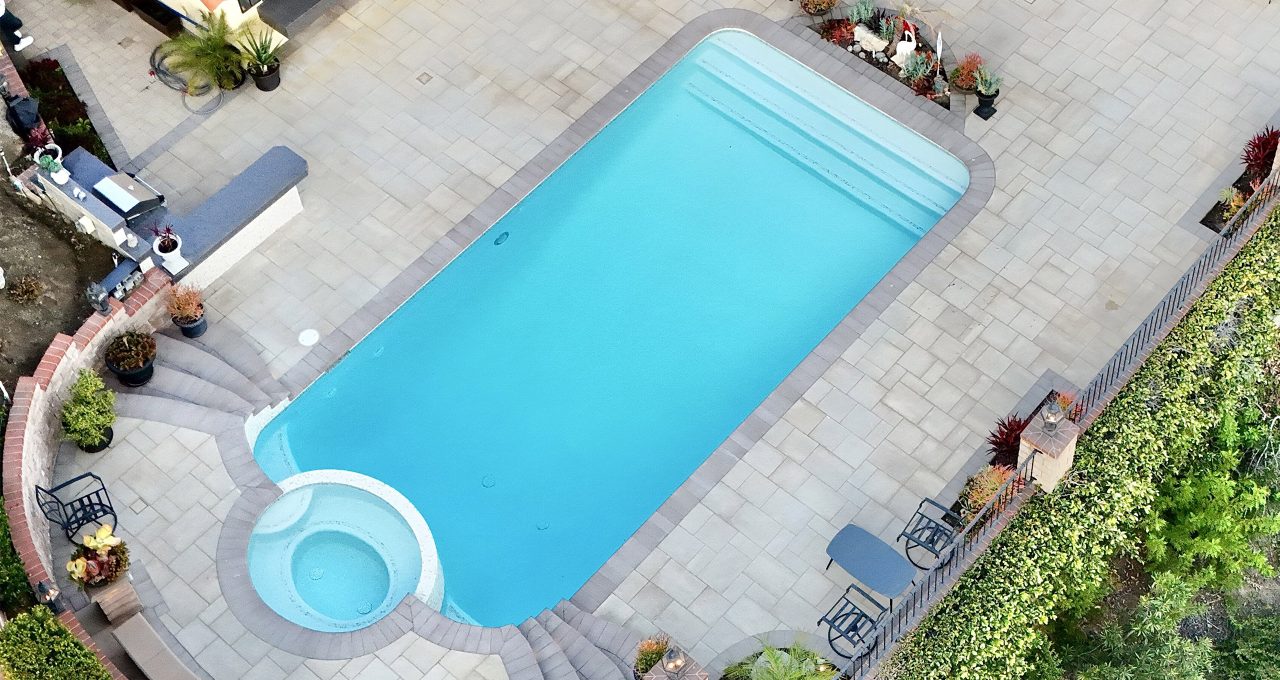
What Are Interlocking Concrete Pavers?
Not all concrete paver installations are interlocking — though many are. Interlocking pavers are designed with edges that fit together like puzzle pieces, creating a stable surface when installed over a compacted base. This makes them ideal for driveways, patios or even commercial areas, where foot traffic or parking frequently occurs. In contrast, non-interlocking pavers, often used for their sleek, modern appearance, don’t provide the same structural support and are better suited for light-use areas like garden paths or decorative patios.
When you complete a project with interlocking pavers, you create a unified look. This is part of what makes them ideal for large projects. When you stand back and view an outdoor area that has been designed using interlocking concrete pavers, you notice the overall appearance of the space, instead of each individual paver.
Modern renditions of cobblestone streets, paved plazas, and many courtyards are prime examples of the use of interlocking pavers. But they’re also beautiful and durable choices for residential design.
Applications for Concrete Pavers
There are as many applications for concrete pavers as there are homeowners to dream about them.
Driveways
Concrete pavers are ideal for driveways thanks to their strength, load-bearing capacity, and resistance to cracking. Unlike poured concrete, pavers can shift slightly without breaking, which helps them endure the weight of vehicles and adapt to minor ground movement.
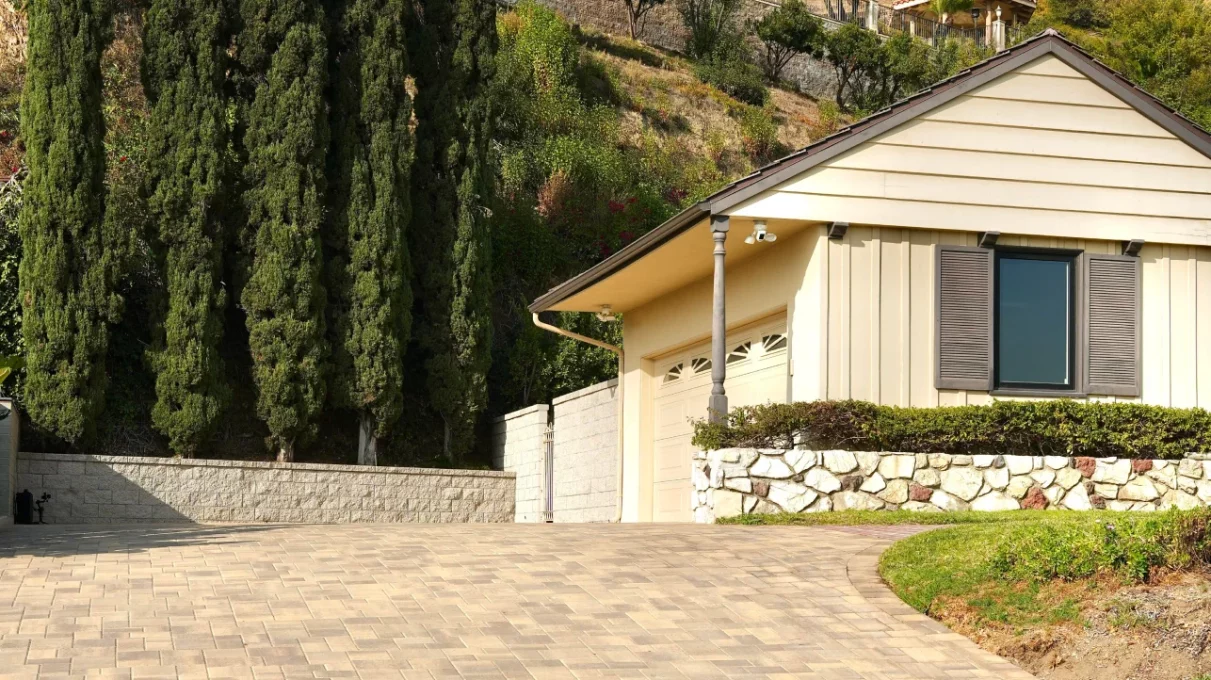
Patios
Concrete patio pavers offer both beauty and performance. Their modular design allows for creative patterns, color variations, and easy repairs if needed. More importantly, they stay cooler underfoot than many other hardscape options and provide a slip-resistant surface — making them as functional as they are stylish for outdoor living.
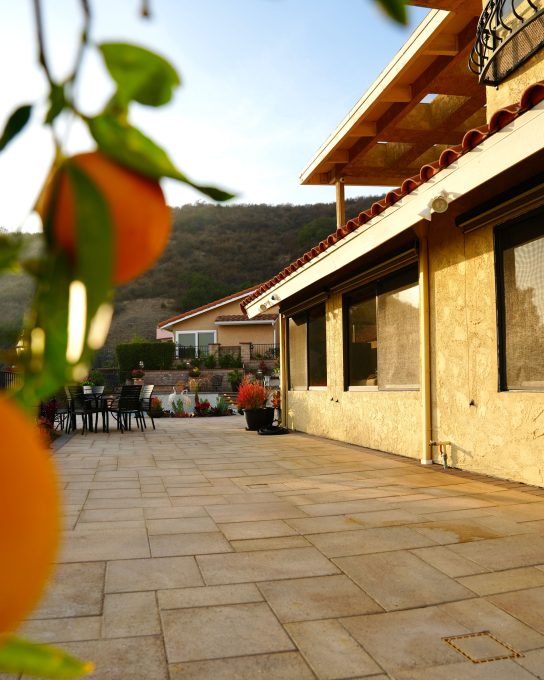
Pool Decks
Pavers make an excellent choice for pool decks due to their textured, slip-resistant surface and superior drainage. They allow water to drain through joints, to help reduce puddling and enhance safety.
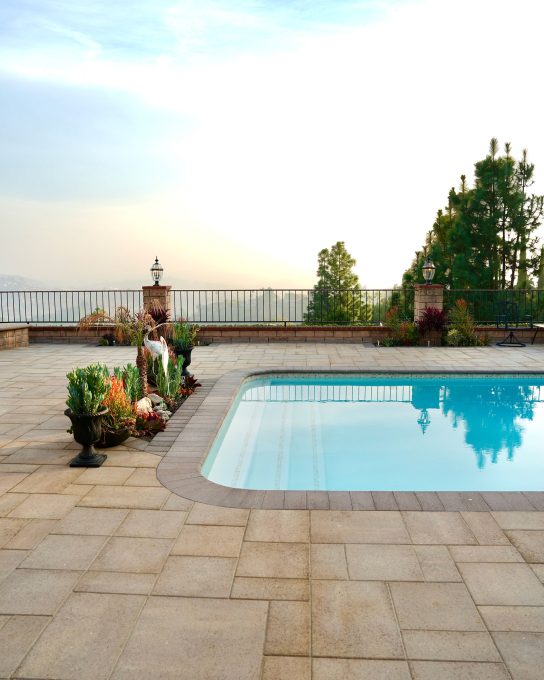
Outdoor Kitchens
For outdoor kitchens, concrete pavers provide a sturdy and low-maintenance foundation that complements built-in grills, prep areas, and seating. Their heat resistance and weather durability make them a smart choice for high-use areas exposed to sun, spills, and temperature changes.
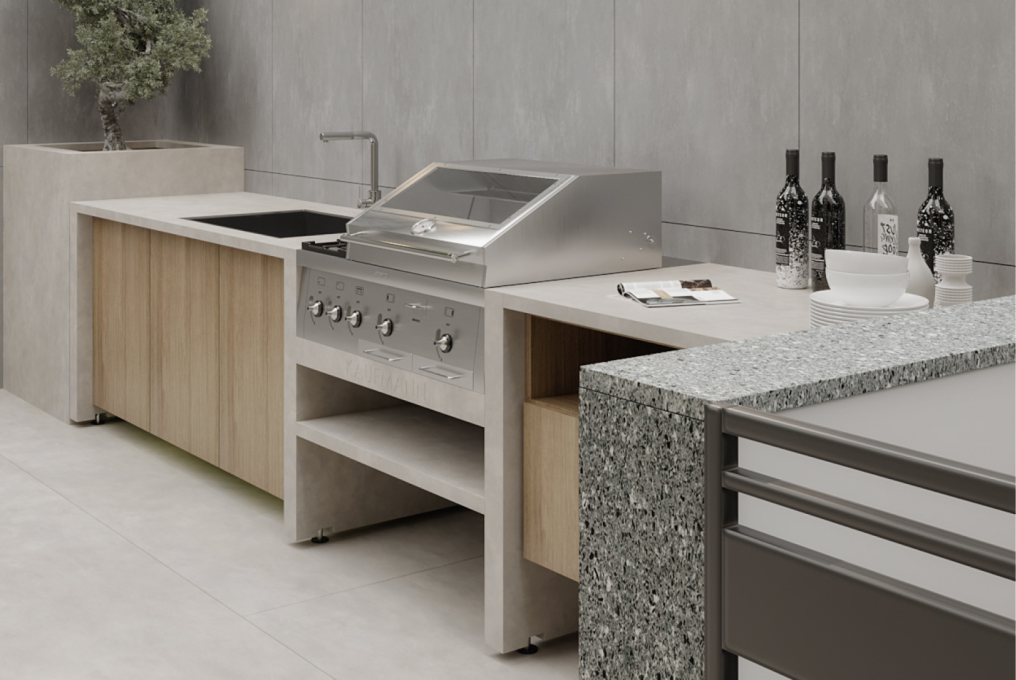
Concrete Pavers We at Superb Outdoors Love
Traditional Style Pavers
- Angelus Antique Cobble I & II: A popular paving stone with endless applications, Angelus Antique 1 and Angelus Antique II have a delightful “bread-loaf”-looking top and old-world charm.
- Belgard Old World: Manufactured to recreate the appearance of those time-worn cobblestone streets of Europe, Belgard Old World pavers feature a cleft top that closely mimics natural stone. It’s available in a solid collection of colors to help you recreate that vintage appearance you envision.

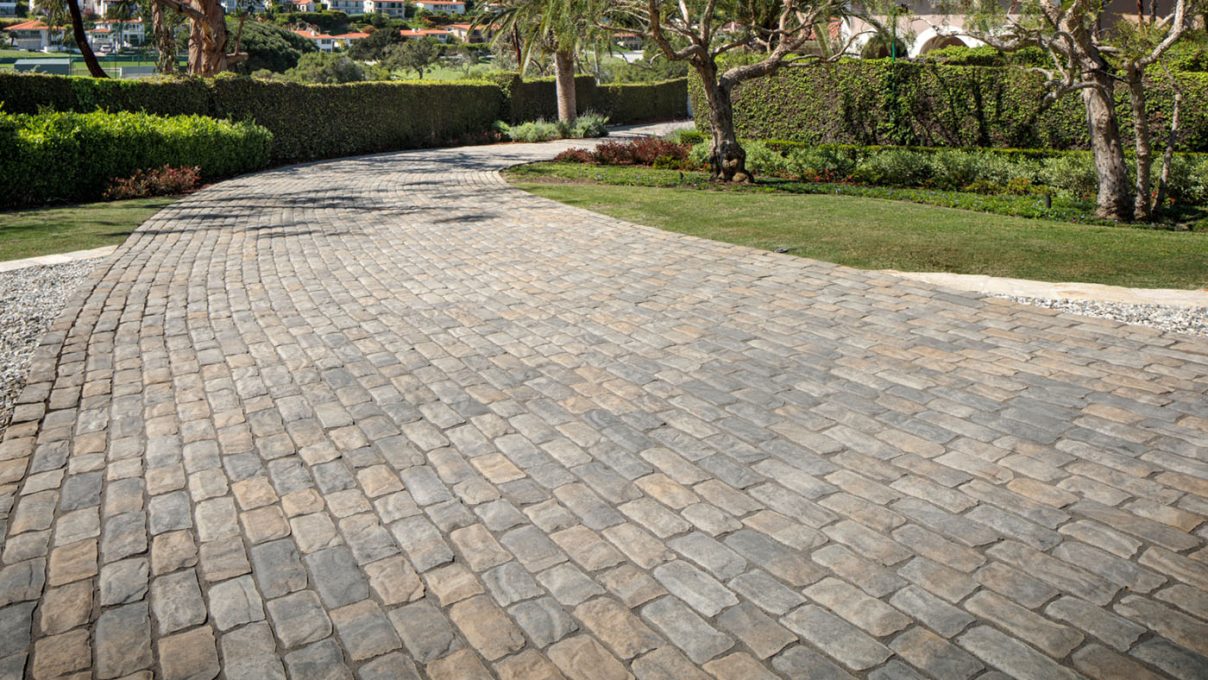
Natural Style Pavers
- Belgard Urbana: With chiseled-texture and defined random contours, Belgard Urbana® is bold choice that gives outdoor spaces the appearance of timeworn stone but with the durability of a concrete pavers. It comes in a 3-piece modular package with an optional Xlarge stone to take complex patterns.
- Angelus Pavillion: With a luxurious texture, no one would guess the Angelus Pavilion I & II paving stones aren’t real flagstone. Combine that with the much-more durable concrete pavers and you have a winning combination.
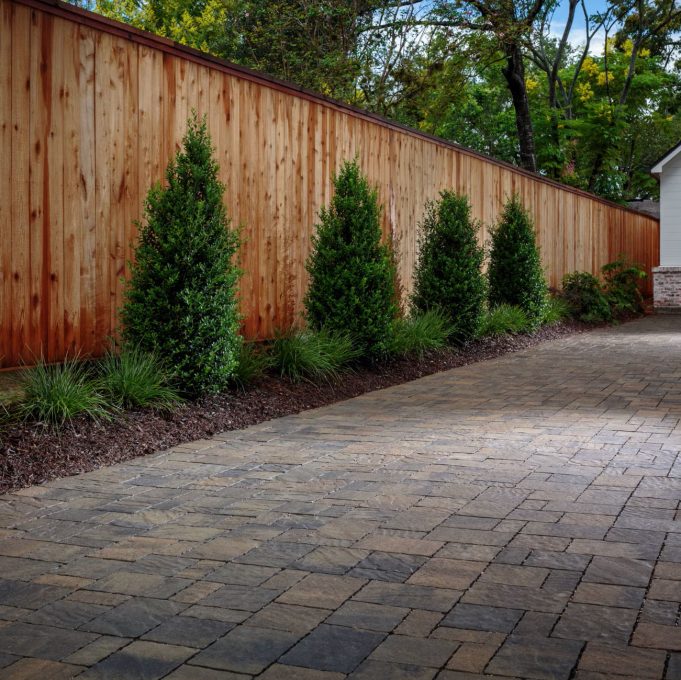
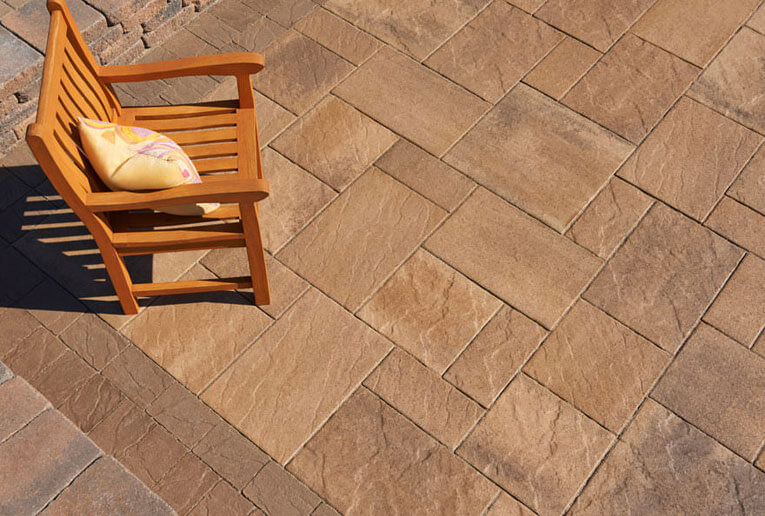
Rustic Style Pavers
- Belgard Dublin Cobble: Gently timeworn with antique edging Belgard Dublin Cobble concrete pavers combine an elegance frozen in time with a functional look reminiscent of Mediterranean villas.
- Angelus Estate Cobble: A charming tumbled paver option from Angelus’ Natural collection introduces bold, rustic character to outdoor spaces with non-chamfered sides and a textured top.


Contemporary Style Pavers
- Angelus Courtyard: Courtyard uses a four-stone combination to create a beautiful variety of layouts for both residential and commercial applications. Durable enough for driveways and parking areas.
- Catalina Grana: The unwavering lines and flat texture of Belgard Catalina Grana® generate an alluring modern look, perfect for garden pathways and patios alike. The spackle of natural color tones, and visual texture nurture creativity and energy.

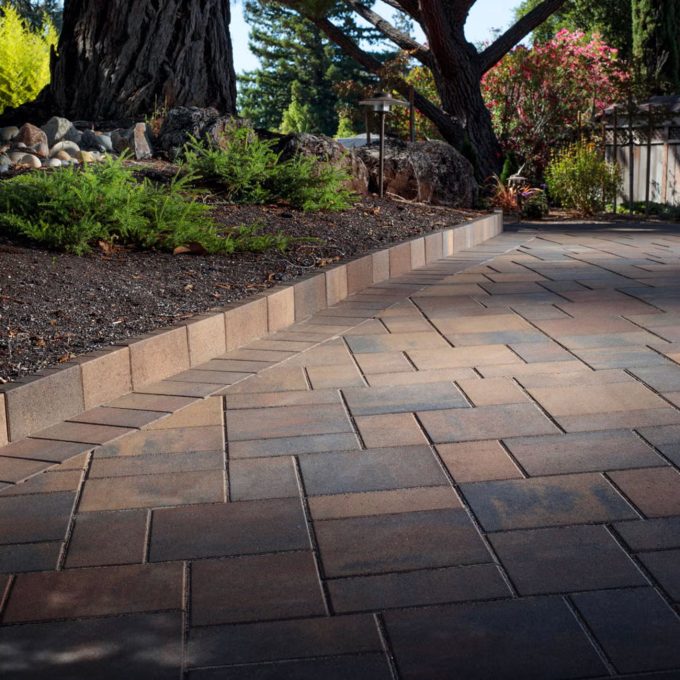
Common FAQs About Concrete Pavers
How much weight can interlocking pavers handle?
When installed by professional paver contractor, pavers can withstand up to 8,000 pounds per square inch of pressure. In comparison, concrete slab is capable of handling 3,000 PSI of pressure. This is one reason why interlocking concrete pavers are popular choices for many commercial projects, including crosswalks, pool decks, and parking plazas.
Is concrete pavers installation less expensive than concrete installation?
Concrete pavers installation is not less expensive than pouring concrete. Installing concrete pavers require extensive design and project planning, expert preparation of gravel or sand base layer, and the hand laying and leveling of individual paver stones. This can take days or weeks as opposed to preparing and pouring concrete, which happens in one to two days.
Are concrete pavers worth the money?
Concrete pavers look expensive, but they’re really quite affordable. And they can last upwards of 50 years with routine maintenance. And if a section of pavement becomes stained or damaged, it’s easy enough to remove and replace it. For these reasons, most consider concrete paver stone installation to be well worth the initial investment.
Do concrete pavers last longer than concrete?
In most instances, concrete pavers last longer than large areas of poured concrete. They’re less prone to temperature changes and the shifting, cracking, and breaking that often happens as a result. Concrete paving stones are also better at preventing pooling of water that can wear down a textured surface over time.
Do concrete pavers get as hot as concrete?
Concrete paver stones typically hold less heat than concrete slab because of the spaces between the joints.
Still Have Questions? We’re Here for You!
Didn’t find an answer? Don’t hesitate to contact us in case you haven’t found your answer. We would love to help!

